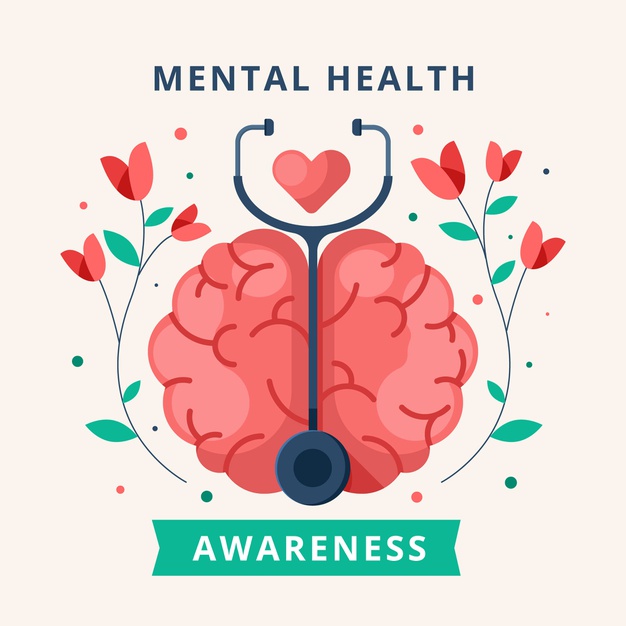In recent times, there has been more acknowledgement of mental health issues, however there is still more work to be done to make people aware that mental health issues exist and are very real. In order to live a truly balanced life, your mental health is just as important as your physical health and should not be neglected.
Mental Health Awareness Week 2020 running from 18 – 24 May (for the United Kingdom) is a chance to focus on mental health.
This year’s theme is kindness. The focus on kindness is a response to the coronavirus outbreak, which is having a big impact on people’s mental health.
Studies have shown that being kind to others has a positive impact on the mental health of both the person performing an act of kindness, and the person on the receiving end. It is important we learn from the coronavirus pandemic to be more kind as a society.
There is no guidebook for COVID-19.
There is no tested guideline that explains how isolation should be done, how hospitals should be prepared, or what we can expect when businesses begin opening again (no matter what the webinars and masterclass folks have been preaching)
The truth is, much of what we are doing is unscripted, uncertain and unprecedented. Words I’m sure most of us have heard a lot of in the past few months.
Many people are experiencing lethargy from a loss of schedule, loss of social stimulation, loss of routine, and loss of job. These factors individually could trigger some symptoms of anxiety or depression.
Some people have mental health conditions like depression or anxiety, which means they have feelings that won’t go away and which start to really affect day-to-day life.
Some of these symptoms may include: a depressed mood; feeling sad, empty, or hopeless; having difficulty with day-to-day tasks; increased fatigue; and sleep difficulties.
Among the most concerning symptoms of depression are thoughts of death, suicidal ideation, and developing a plan for suicide.
Lots of people are also anxious at this time. Anxiety is an emotion that anyone can feel and is perfectly normal especially with everything going on at the moment. It doesn’t necessarily mean that there is an underlying mental health disorder. People with generalized anxiety tend to worry excessively and find it difficult to control that worry or stop it, even with logic.
This can lead to feelings of being “on edge,” and it may cause symptoms like sleep disturbances and even heart palpitations.
All these factors combined with other behavior changes likely occurring during COVID-19 lockdown orders, like irregular eating and sleeping patterns and reduced activity levels, and it’s a recipe for mental health disaster.
Here are some suggestions of things that may help.
Find a therapist
Thanks to technology, now that we have an app for everything, it is still possible to connect with therapists at this time. Many doctors are now offering telemedicine consultations and so are therapists. You may need to speak to your doctor for a referral, or just do an internet search to find a qualified, licenced therapist/ mental health expert.
Be patient with yourself
This pandemic is like nothing any of us has ever experienced. No one should expect to get it “right.” Allow yourself to experience the emotions that come naturally without judging those emotions or being too hard on yourself for feeling them.
Simple things like going grocery shopping now take time. Recognize that some things are taking longer, and that you may not be as productive as usual.
Remember to breathe
This may sound cliche but don’t forget to breathe. Taking deep breaths can help calm you down when you’re feeling overwhelmed.
Try some physical activity
The gyms may not be open at the moment but that is not the only place where you can engage in physical activity, Remember that all you need is your body and every movement counts as exercise. Find some time to exercise, even if it is doing ‘laps’ around your house or pulling out a few bottles of water to make ‘improvised’ weights, exercise can be quite beneficial for stress and overall mood. You can also check out Youtube for some exercise videos.
Set a routine
Routines are important and can be helpful when struggling with anxiety, sadness, and other issues. The routine doesn’t have to be anything perfect, just something simple, basic even.
A wake-up time, a routine upon waking, a goal for the morning, a goal for the afternoon, some form of activity, and pleasurable activities. This can be difficult for someone who is experiencing apathy, but even just having a wake-up time can be a start.”
Make social contact
You can’t make physical contact, but you can make contact with others nonetheless. And again thanks to technology we have lots of options, from regular calls and text messages to FaceTime, Whatsapp calls and even Zoom. So take advantage and stay in touch.
In all things, remember to be kind. To yourself and to others. We are all going through this together.






